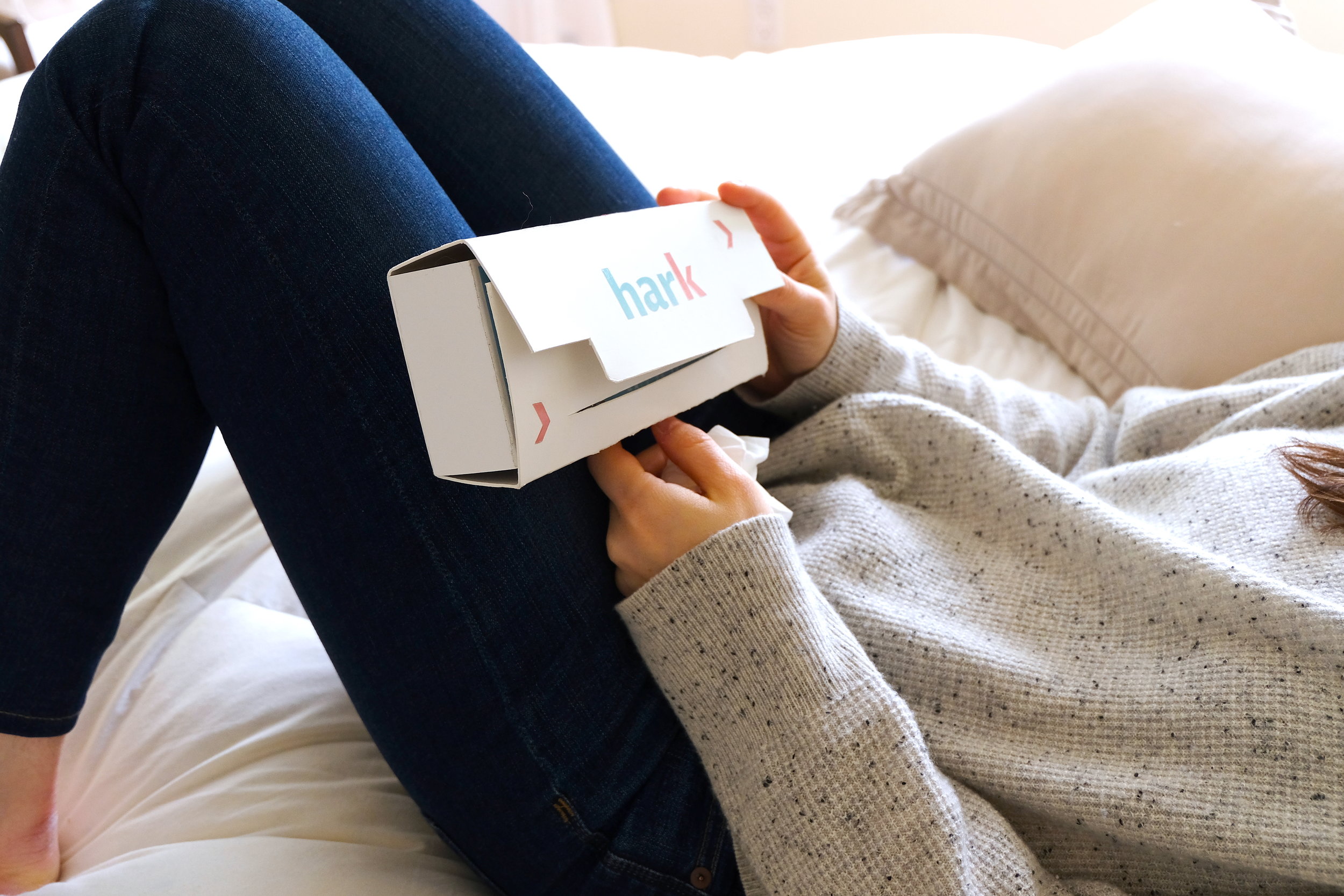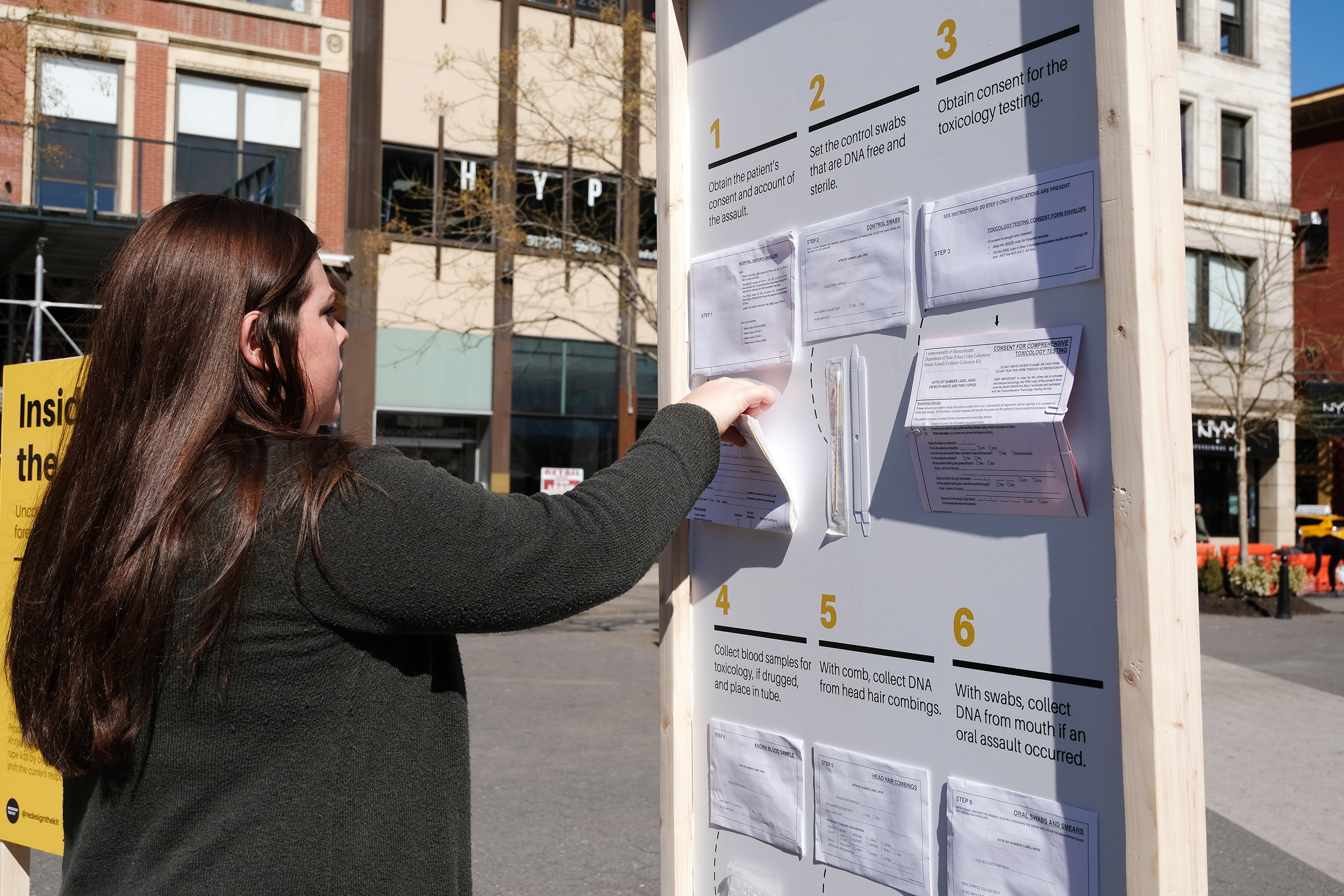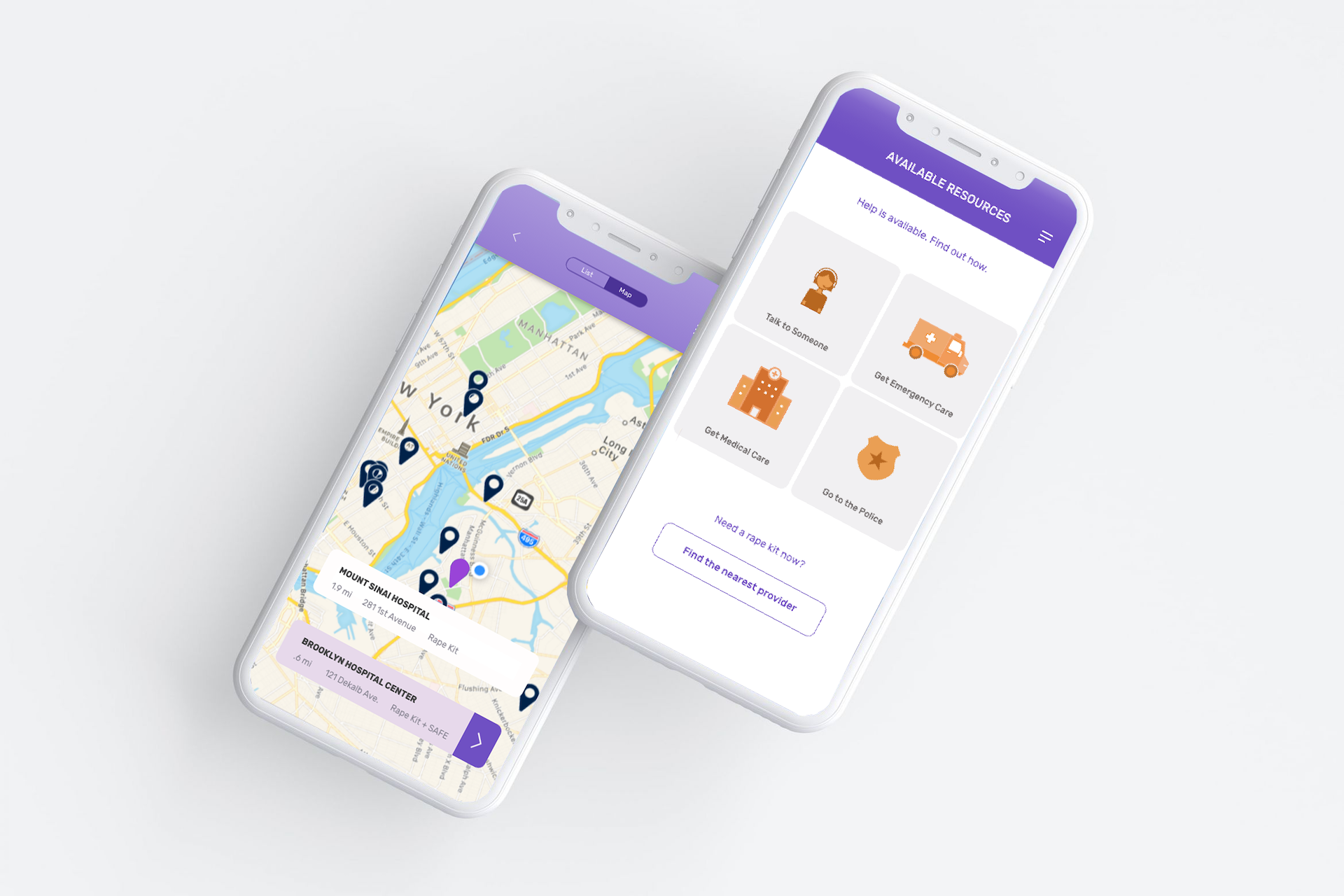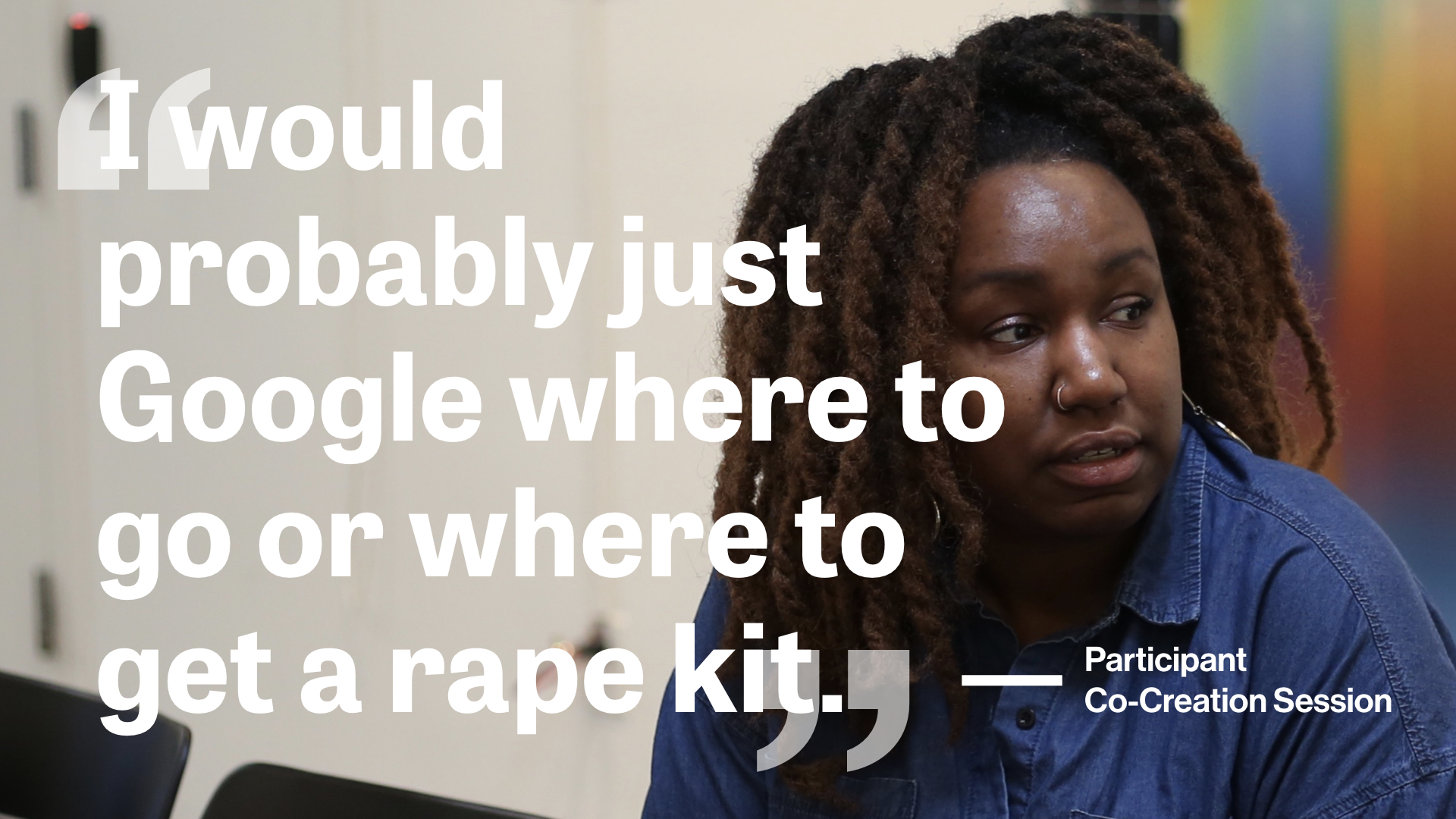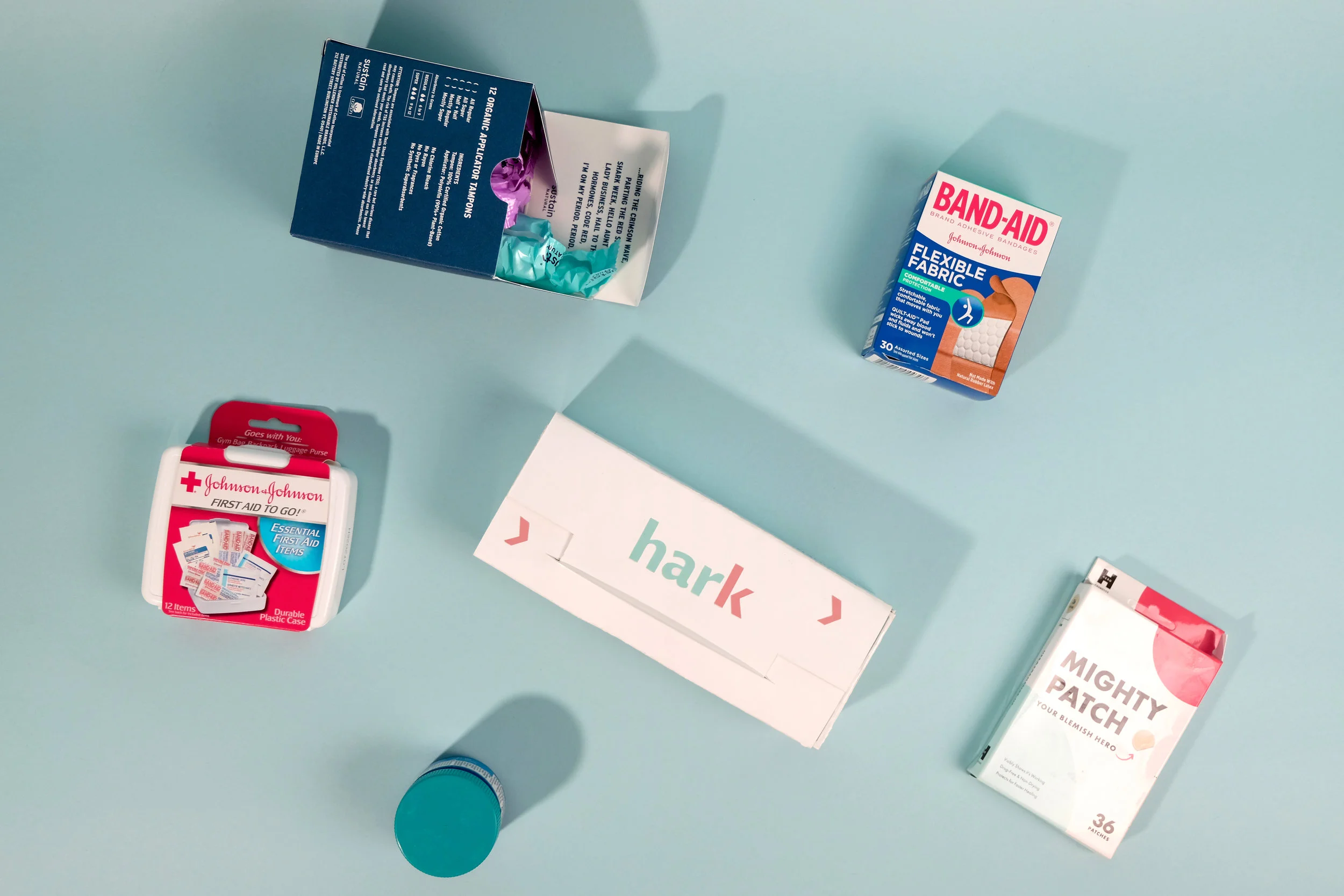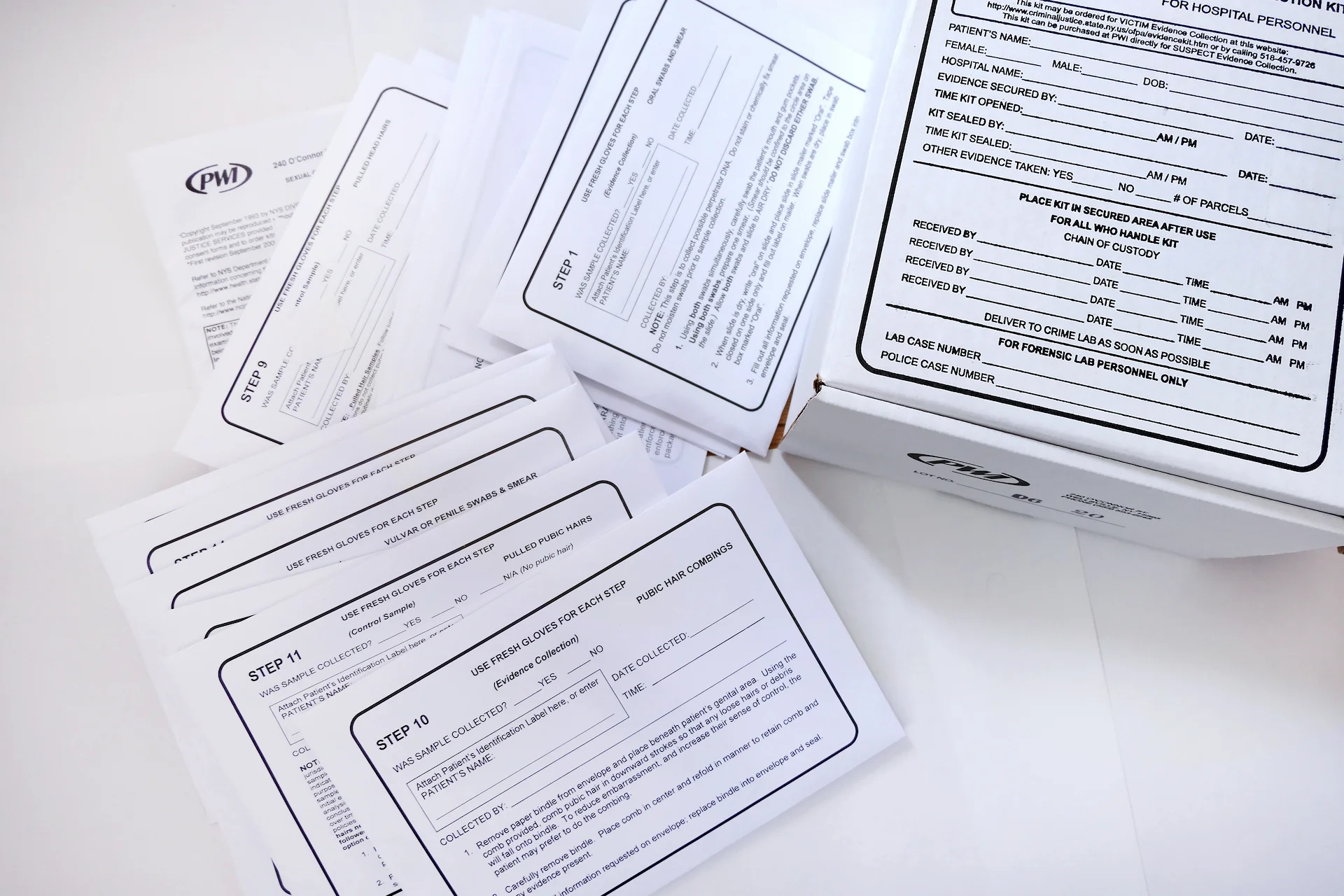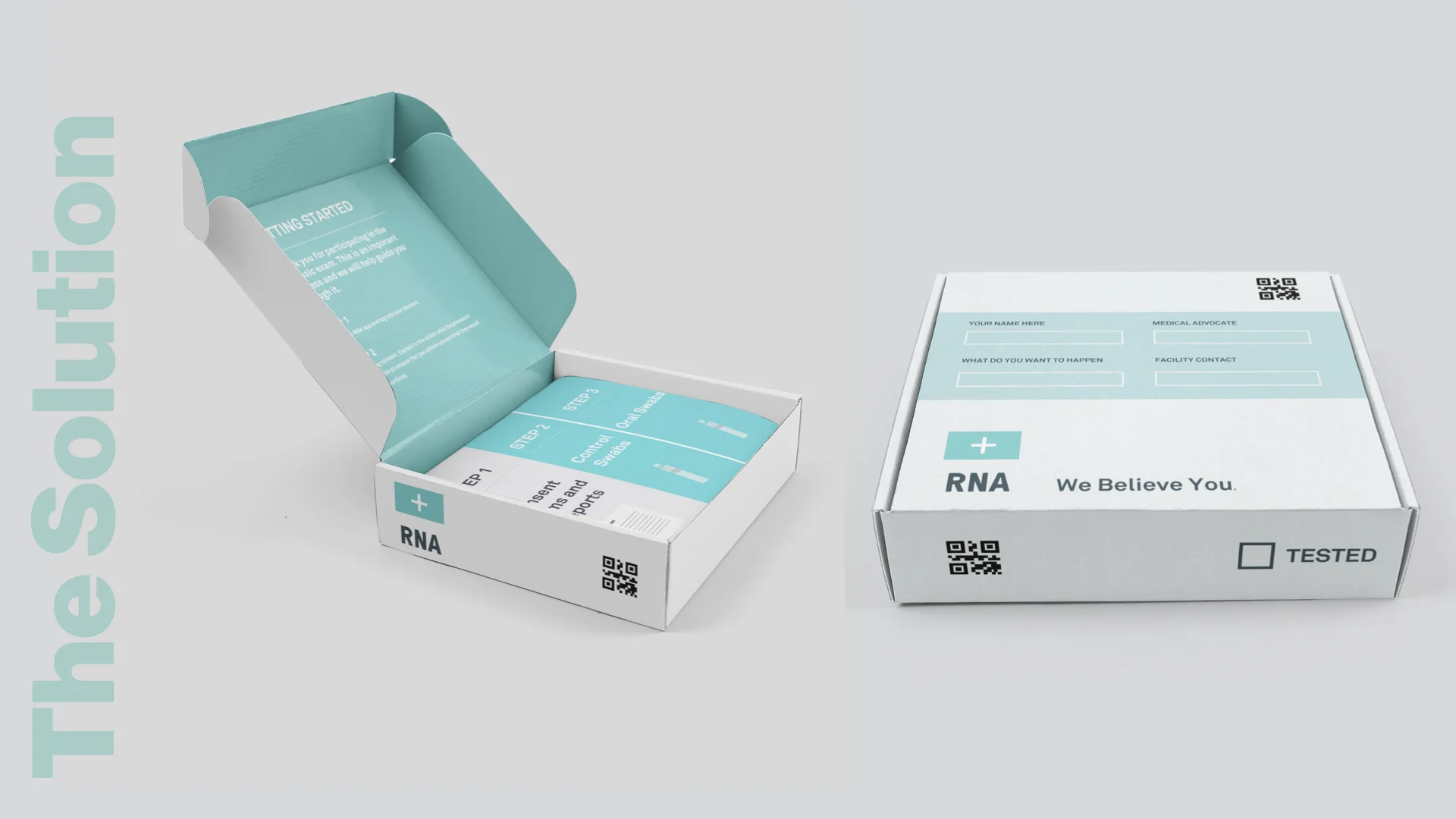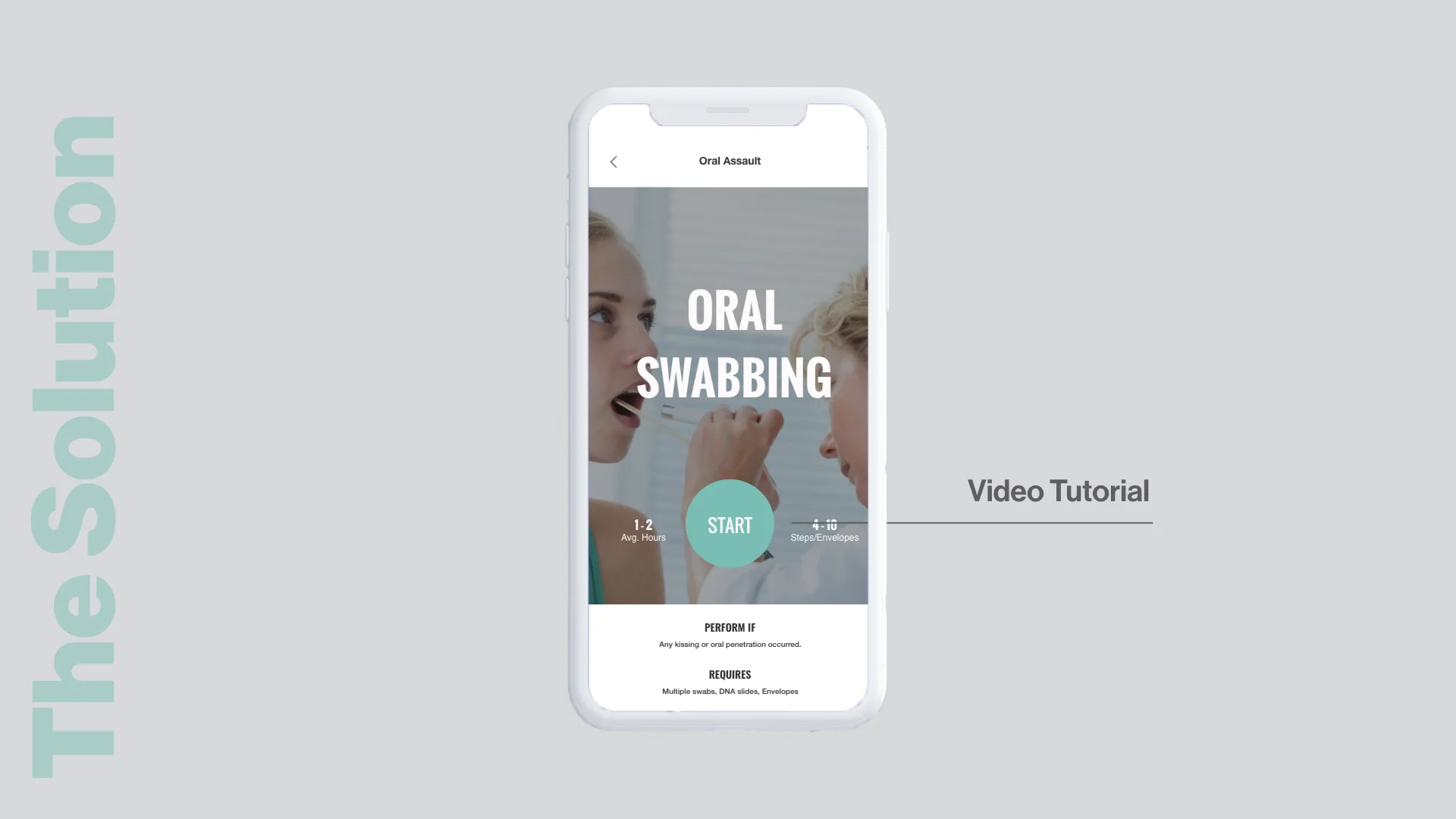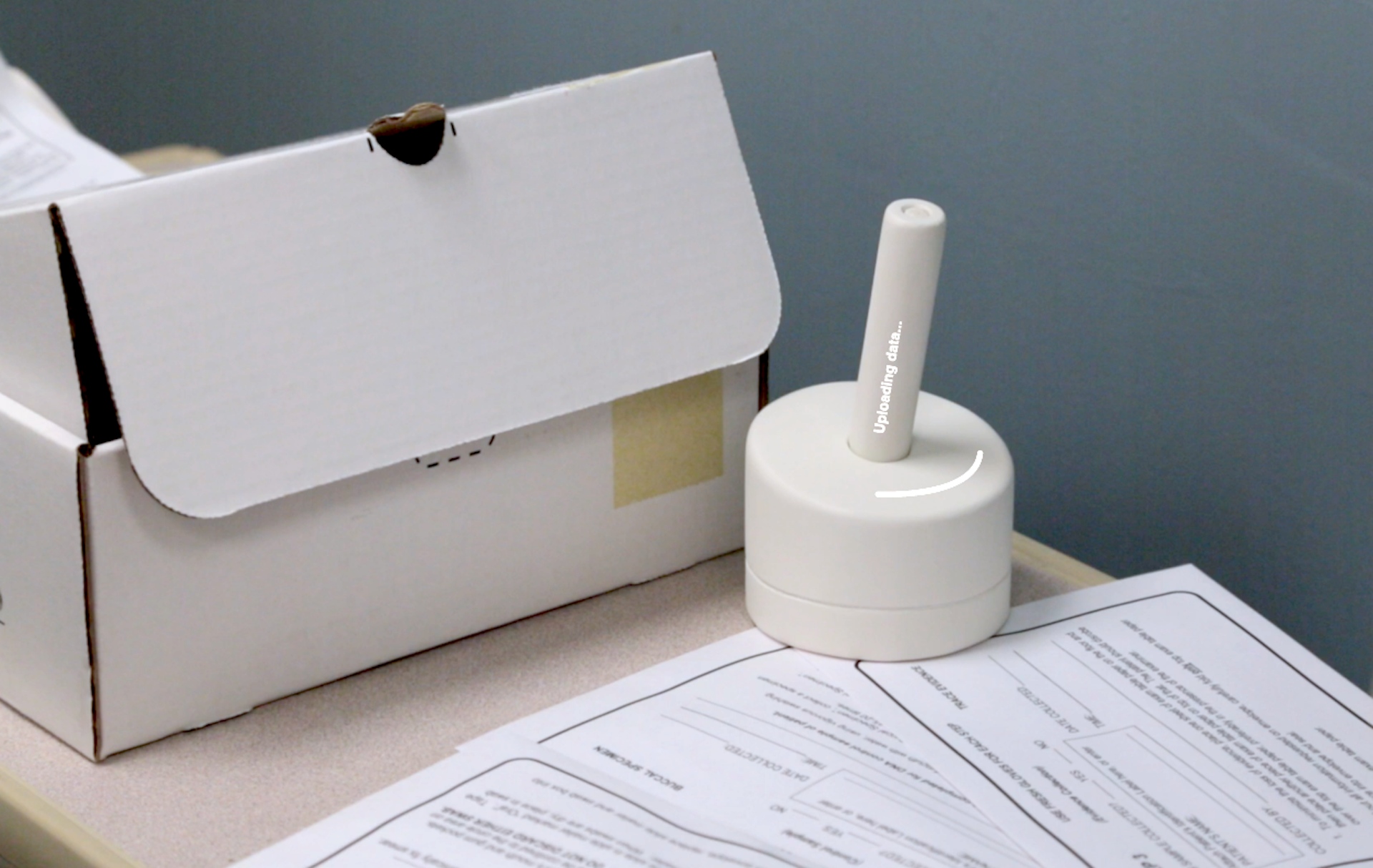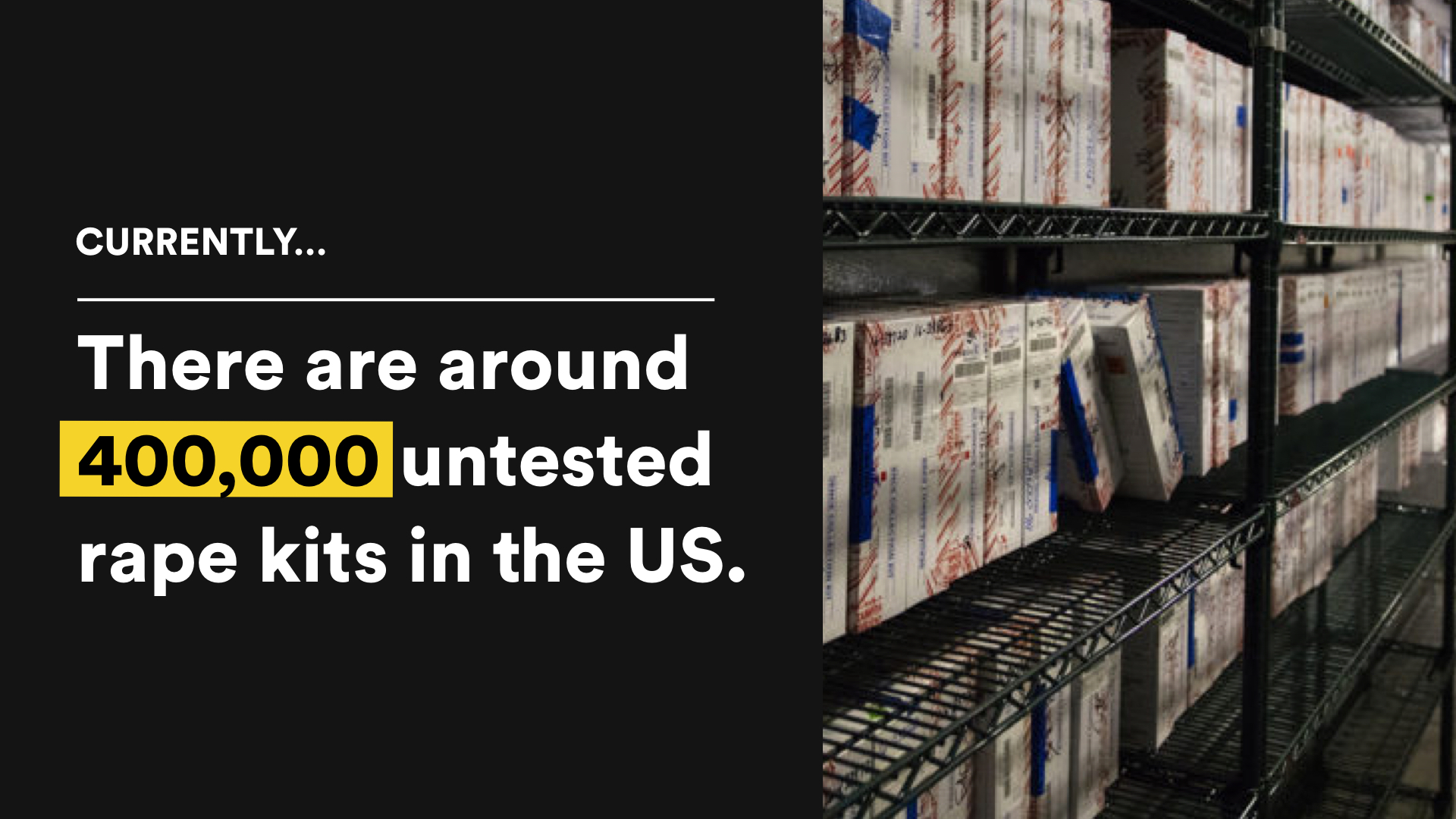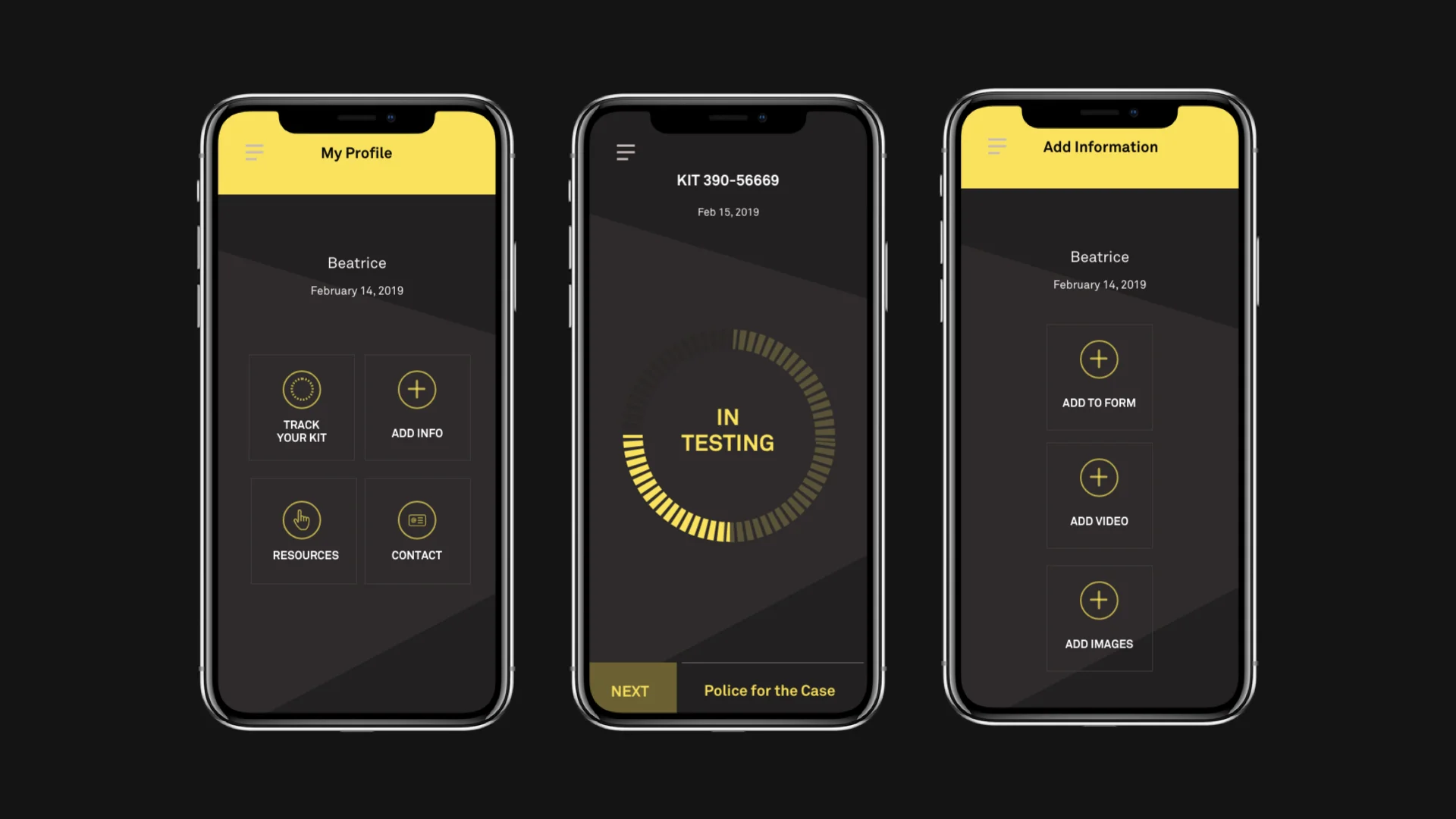WHEN NO ONE BELIEVES YOU: Redesigning the Rape Kit and Responses to Sexual Assault
Sexual assault is a massive problem in the United States. Assault rates are alarmingly high: Every 92 seconds, someone is sexually assaulted. Report rates are low: only 30% of sexual assault victims report the crime. Antya Waegemann spent most of her life living amidst these statistics and listening to women around her live in silence. Her thesis, When No One Believes You: Redesigning the Rape Kit and Responses to Sexual Assault, proposes six different design interventions for sexual assault victims, nurses and the police, including two redesigns of the standard rape kit, an emergency sexual assault resource app, a product that detects DNA during the exam, and a rape kit tracking system. The aim of the products is to increase report rates, improve the experience of getting a rape kit, and increase rape kit testing, as well as to reduce stigma and shame around sexual assault, and increase accountability.
Hark puts the rape kit process in the hands of the victim, and removes the stigma, judgment and long process of the current rape kit and forensic exam which can take anywhere between 3-10 hours in a hospital emergency room.
During the beginning phases of her research, Antya spoke to Ayan Ahmed, a New York social worker who told her that “For any trauma victim, it’s not about what happened to you, it’s about what happens right after.” This led Antya to consider the sexual assault forensic examination process as a powerful opportunity to make victims of sexual assault feel supported.
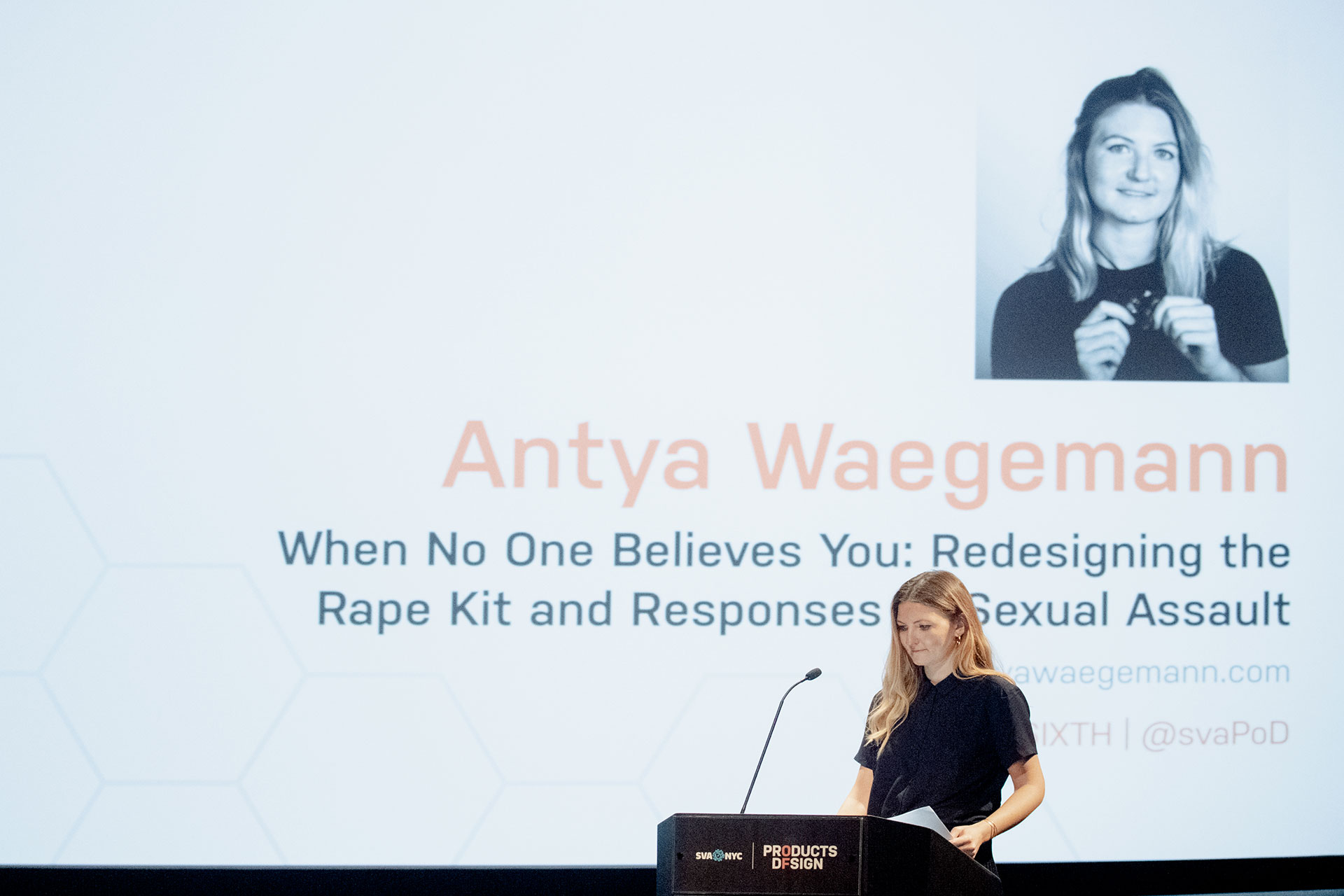
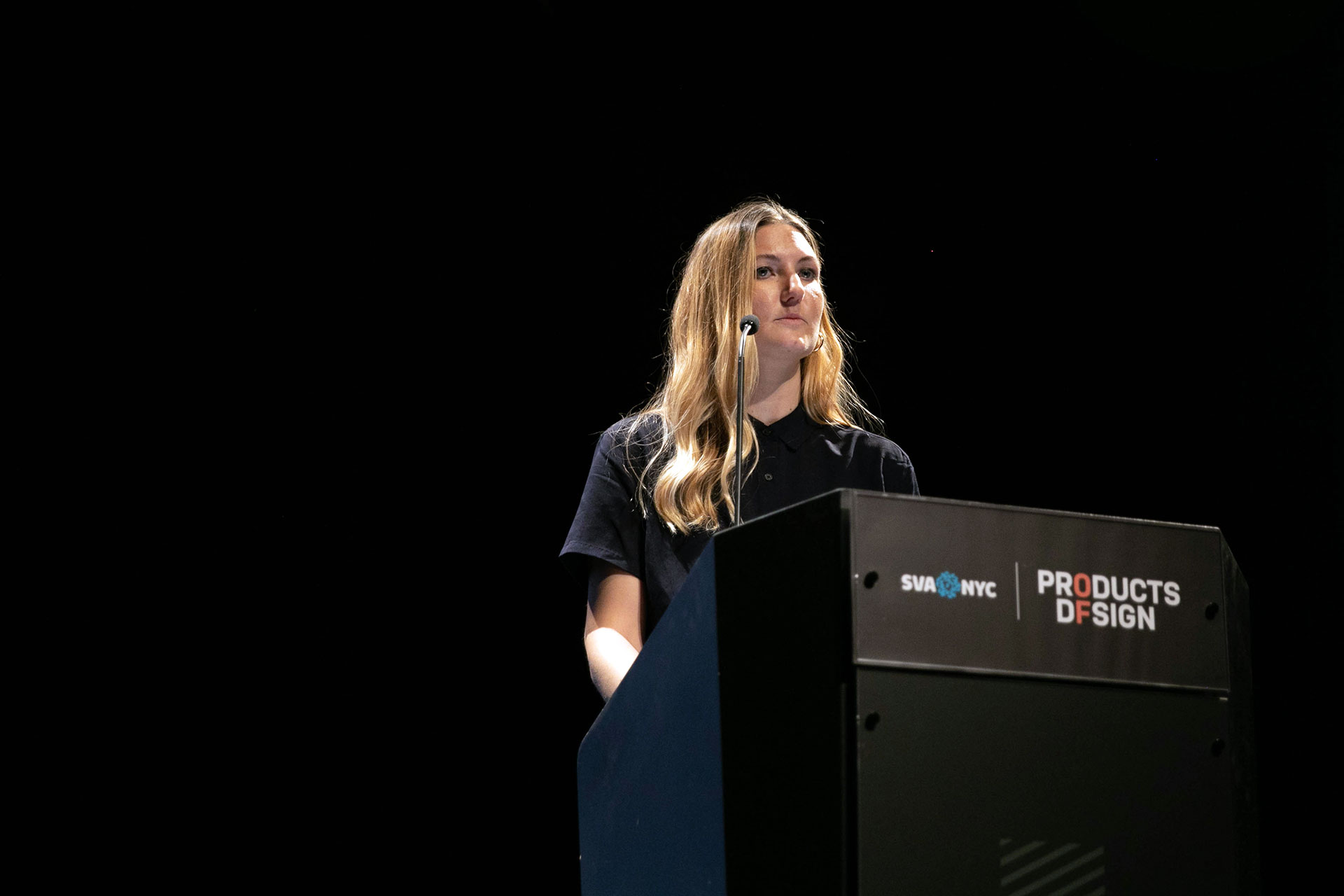
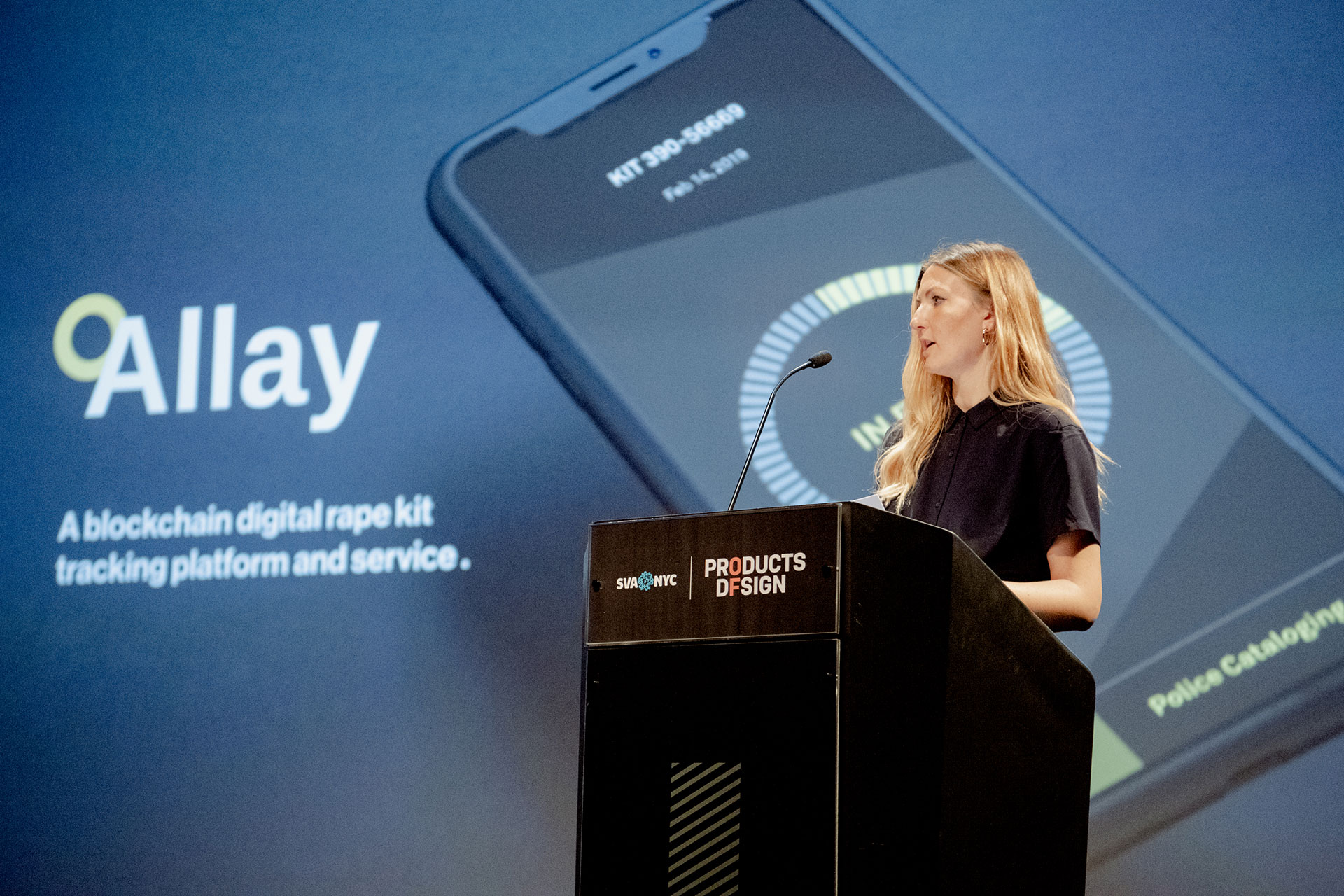
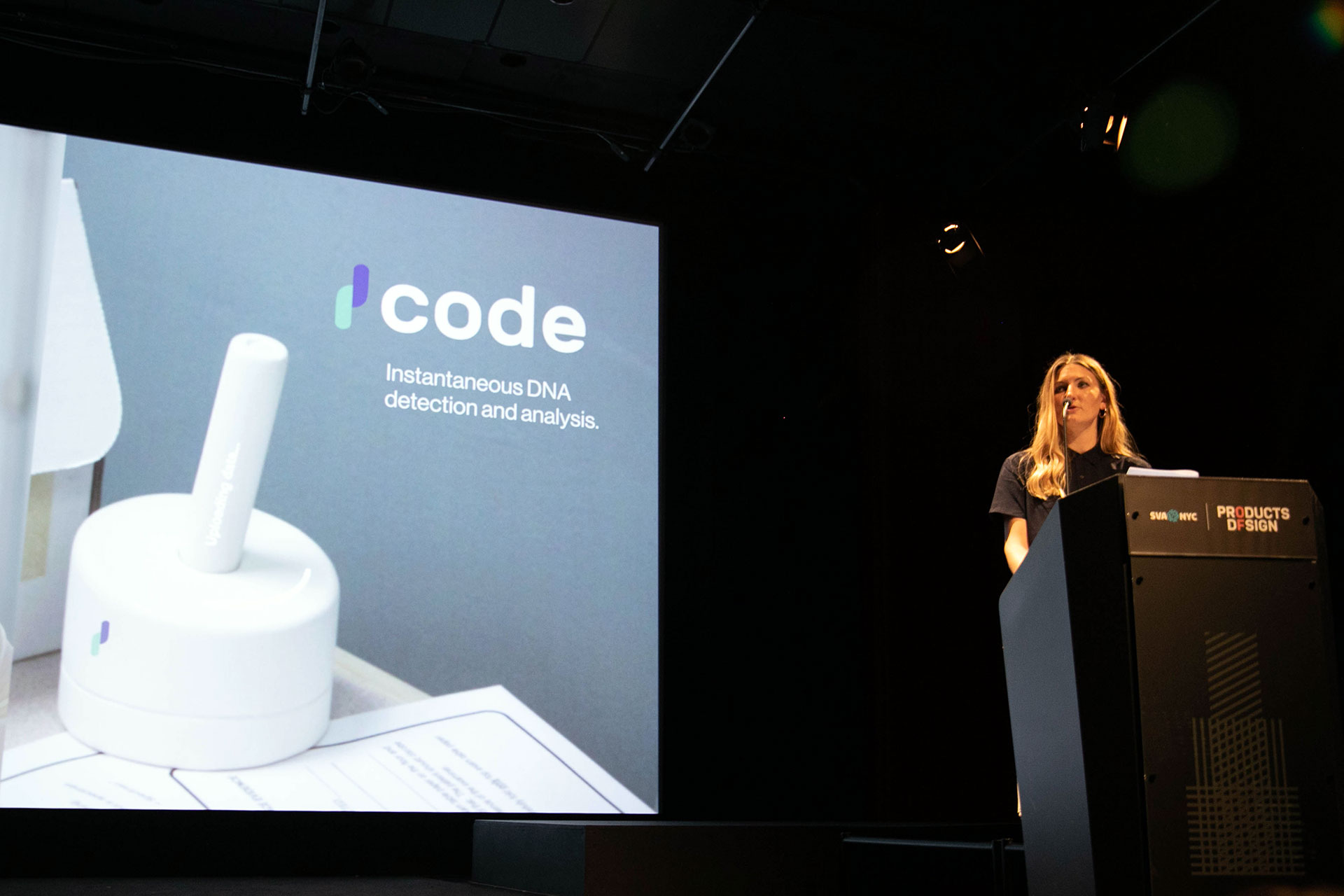
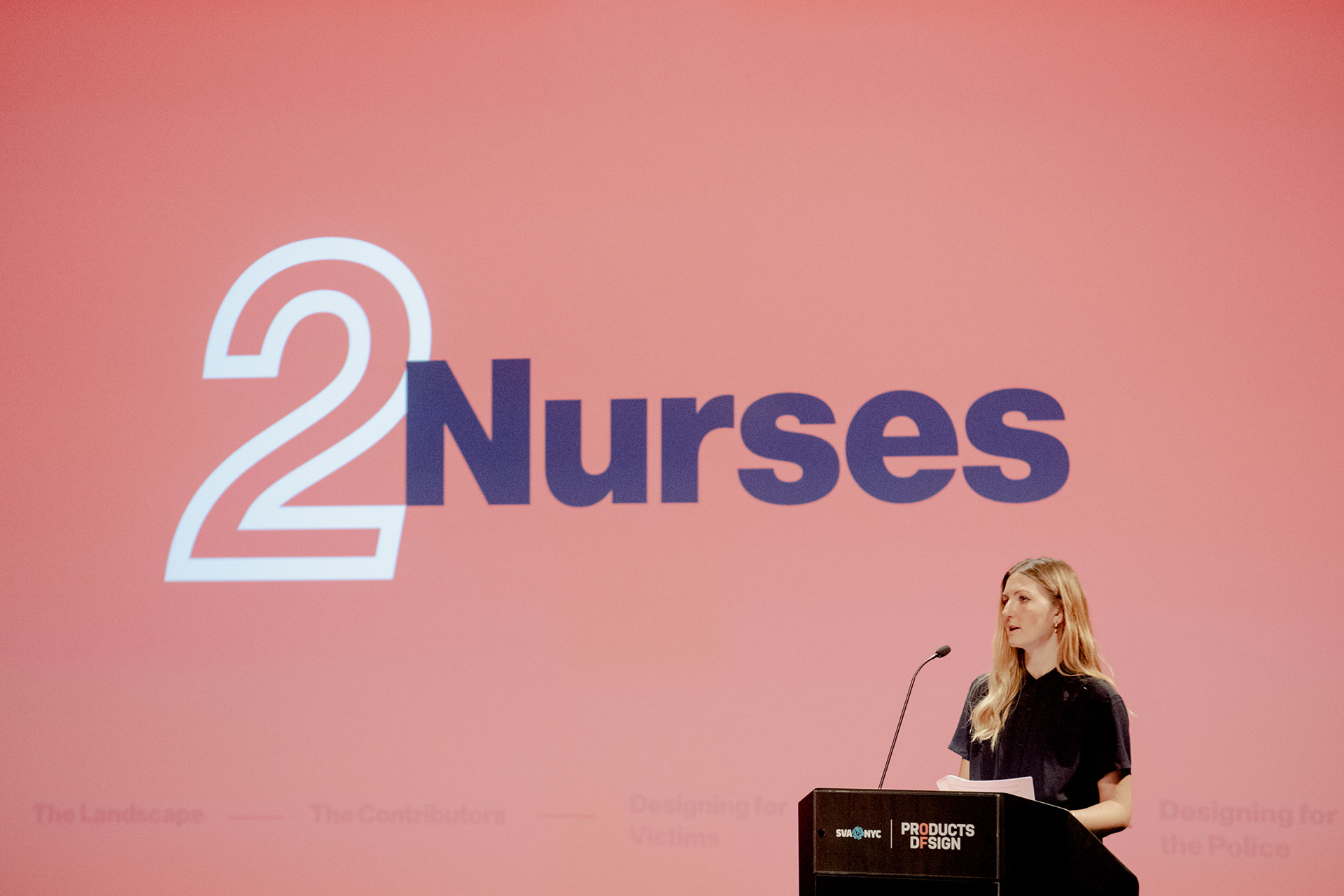
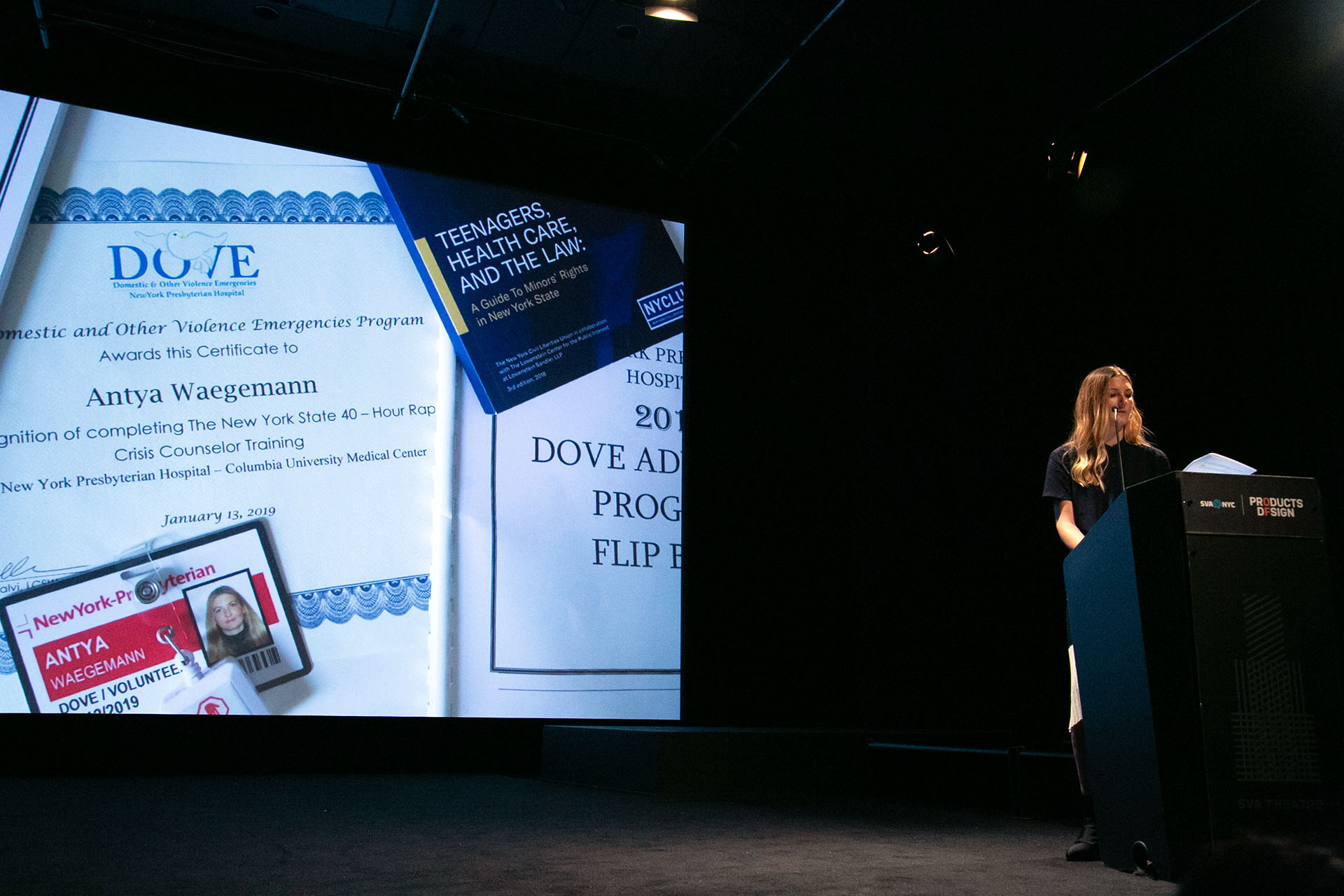
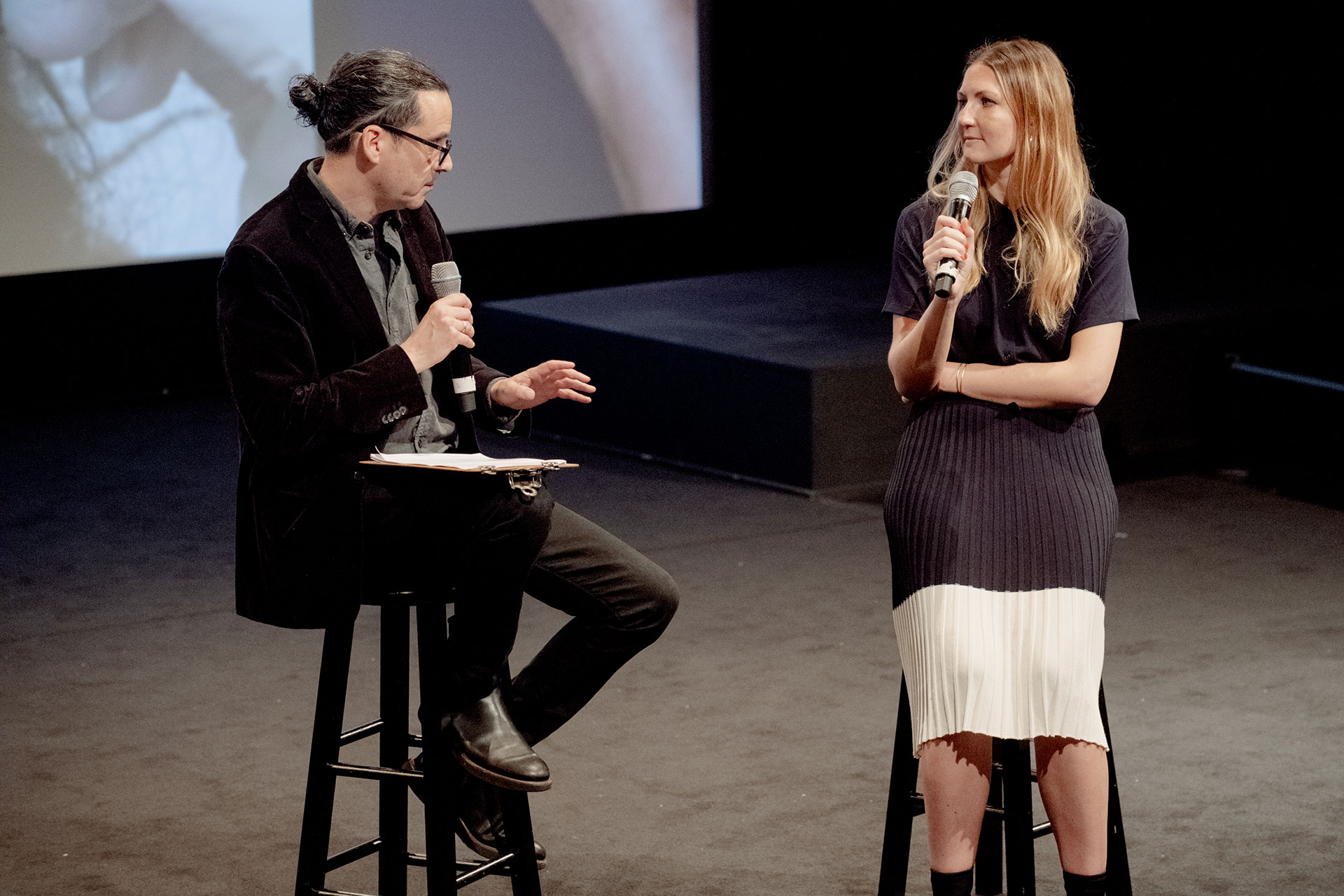
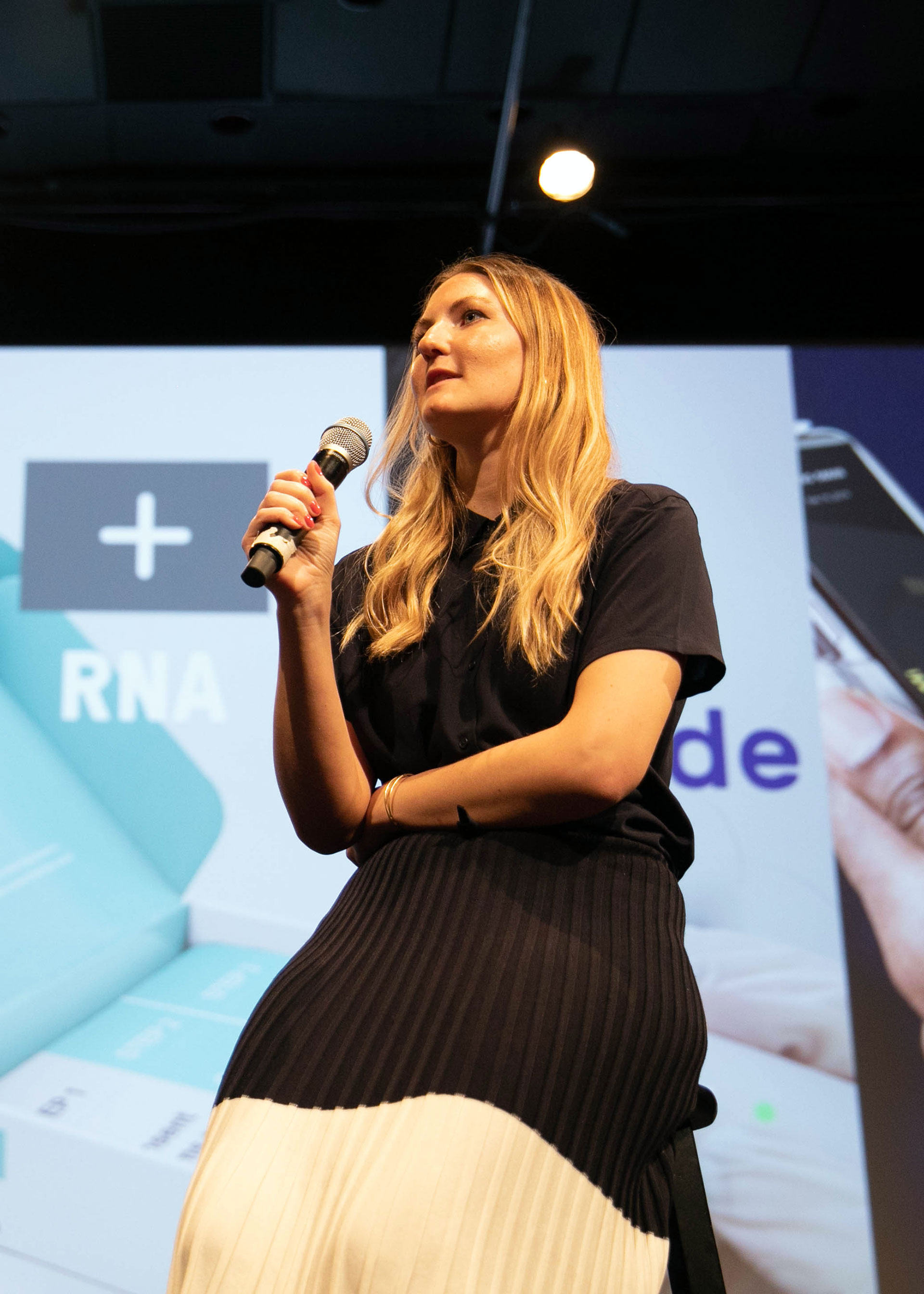
SAFE: An emergency response app for sexual assault
SAFE is an emergency response app that provides victims and their supporters with easier and clearer access to resources and options after a sexual assault. Many victims cited not reporting sexual assault because of shame, not feeling believed, or not feeling like anything would be done if they did report. SAFE increases transparency and awareness around sexual assault, to help battle the stigma and shame around seeking help and create a collective understanding of options in light of a sexual assault. Antya designed SAFE after finding it very difficult to find clear and helpful resources online, and after learning that many hospitals don’t even have nurses trained to respond to cases of sexual assault, nor any rape kits available.
Hark: An over-the-counter emergency health and rape kit
Hark is a speculative over-the-counter rape kit, available at any major pharmacy. Small and discreet, the kit is designed to be approachable and comforting for victims of sexual assault. Hark puts the rape kit process in the hands of the victim, and removes the stigma, judgment and long process of the current rape kit and forensic exam which can take anywhere between 3-10 hours in a hospital emergency room. It includes emergency STI testing and emergency contraceptives, and if the victim wants to collect evidence, they can call an on-call Sexual Assault Nurse Examiner performs the exam, as having a professional collect evidence and maintain chain of custody is extremely important when it comes to evidence in cases of sexual assault. Hark aims to restore agency to victims, and acts as a step towards changing the way incidents of sexual assault are reported, and the way society responds to and perceives victims.
“The current system around rape kits is not victim-centered, not trauma-informed, and discourages women from reporting sexual assaults,” Antya shares. “Just as many women want to buy a pregnancy test or Plan B without the judgement of strangers, and take them in the privacy of their own homes, couldn’t sexual assault kits be just as accessible and private?”
RN Advocate: A redesigned rape kit
Less than ¼ of hospitals in the country have nurses that are trained in performing sexual assault exams (rape kits)—which means the majority of rape kits are performed by nurses and doctors who may never have even seen a kit before. Because the current rape kit’s design is so overwhelming to any untrained nurse, nurses turn often away sexual assault victims because they don’t have the 3-10 hours it takes to perform the exam.
RN Advocate or RNA is a redesigned rape kit for emergency room nurses and doctors, especially those without forensic and sexual assault training. RNA consists of two parts: a physical redesign of the existing rape kit, and an app. The RNA kit includes color-coordinated envelopes or steps, to better differentiate essential information for nurses to collect and labs to test, based on the victim’s assault. The digital platform is designed for both the nurse and the victim, to help familiarize them with the steps required to perform the kit, allowing the victim to assist in the process. Sexual Assault Nurse Examiners have talked about how important it can be to allow the victim to take control of the exam in a time when they feel as though they have lost all their power. Antya believes that if the process is less traumatizing for the victim and easier to navigate for the nurse, it might encourage increased reporting and accountability.
The current rape kit, with its sixteen almost-identical envelopes, is often overwhelming for medical practitioners and victims.
Code: A DNA detecting and testing device
Code is a speculative product that makes DNA collection immediate, in contrast to the current, lengthy process of collection and testing, which involves a 3-10 hour examination with no guarantees that DNA has been found (in fact, only 65% of rape kits yield the perpetrator’s DNA). Code consists of two parts: a DNA collecting device, and a charging and uploading device. The DNA is collected with a sterile smart swab that allows for faster DNA detection and instant differentiation between the victim’s DNA and foreign DNA—the perpetrator’s—thus avoiding the current practice of swabbing the victim and collecting nail scrapings and combings multiple times throughout the forensic exam. After DNA detection, the smart swab is placed into evidence for the victim’s case. Code not only reduces discomfort for the victim during testing, but also speeds up the process of finding justice after a sexual assault.
Allay: A tracking platform for rape kits.
There are over 400,000 untested rape kits in the United States. It is primarily the responsibility of the police to decide whether to test rape kits, depending on a variety of factors. Whether or not a kit is tested, it is often extremely difficult for victims to track where the kit is and what has happened to it. This creates great distress and distrust during the process.
Allay is an integrated platform that makes it easier to track rape kits, by increasing transparency between the agents involved in the case. Allay brings together nurses, police, victims, and lab technicians, so that they can collaborate on the case rather than remain siloed in their own environments. Allay is sold alongside rape kits, and has three main components: 1) Scanning capabilities—through QR codes and a responsive digital interface, users can easily scan the kit as it passes with them; 2) Tracking capabilities—the software allows the user to track the kit at any time, showing where it is, when it got there, and where it is supposed to go next; and 3) The ability to add information—any user can add information to the case at any time, to allow for a more robust case, but also to empower the victim to add information, and to increase communication between lab techs and nurses.
To learn more about Antya Waegemann’s work, take a look at her projects in more detail at antyawaegemann.com.







